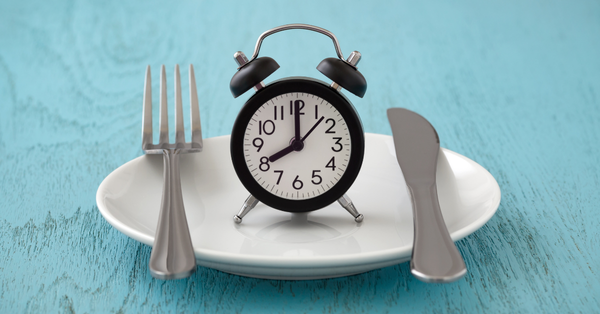Deep Sleep Decoded: Proven Strategies to Improve Sleep Quality in Your 40s and 50s

Getting enough sleep is a cornerstone of healthy ageing. Adults over 40 often find that it becomes harder to get a full night’s rest or to wake up feeling refreshed. Hormonal shifts, stress and lifestyle factors can shorten the restorative stages of sleep or fragment sleep cycles.
Science shows that all sleep stages are important, yet deep sleep (slow‑wave sleep) and rapid eye movement (REM) sleep play special roles in restoring the body and mind.
During deep sleep your muscles relax completely, your pulse slows and your brain waves change; waking from this stage can leave you groggy. REM sleep, meanwhile, helps the brain process memories and emotions.
1. Keep a consistent sleep schedule and track your sleep
Your body’s internal clock (circadian rhythm) thrives on regularity. Sleep specialists at the Cleveland Clinic recommend keeping a consistent wake‑up time and bedtime to maintain that rhythm and improve the quality of both deep and REM sleephealth.clevelandclinic.org. A sleep diary helps you see patterns: jot down when you went to bed, how long it took to fall asleep, how often you woke up and how you felt the next dayhealth.clevelandclinic.org. Wearables and apps can complement a diary, but aim to use them as feedback rather than fixating on nightly stats.
2. Create a sleep‑friendly bedroom
Your sleep environment can make or break your night. Experts advise making your bedroom cool, dark and quiet—what Dr. Michelle Drerup calls a “cave‑like” roomhealth.clevelandclinic.org. The ideal temperature for sleep is around 60–67 °F (15–19 °C)health.clevelandclinic.org. Use blackout curtains, eye masks and earplugs or pink noise to block out light and soundhealth.clevelandclinic.org. Before bed, turn off the TV and silence your phone; screens and notifications can stimulate the brain and fragment sleephealth.clevelandclinic.org.
3. Establish a relaxing bedtime routine
A calming pre‑sleep ritual signals your body that it’s time to wind down. Taking a warm bath an hour before bed may raise body temperature and promote deeper slow‑wave sleepsleepfoundation.org. The subsequent cooling of your core temperature helps you transition into sleep. Other relaxing activities include reading, journalling, gentle stretching or listening to soothing music. Practices like meditation, yoga or aromatherapy can also reduce stress and prepare you for sleephealth.clevelandclinic.org.
4. Nourish your sleep through diet and lifestyle
What you eat and drink before bed affects your sleep architecture. A small study found that diets high in saturated fats were associated with less slow‑wave sleep, while eating more fibre led to increased deep sleepsleepfoundation.org. Incorporating high‑fibre carbohydrates such as the foods listed in our article on the 6 Best Carbs to Eat After 40 and prioritising gut‑friendly foods from Gut Health 101 can support better sleep. Try to avoid heavy meals, caffeine and alcohol close to bedtime; Cleveland Clinic experts warn that alcohol delays REM sleep and increases nighttime awakeningshealth.clevelandclinic.org.
Regular exercise is another powerful sleep aid. Aim for at least 150 minutes of moderate activity plus two strength‑training sessions per weekhealth.clevelandclinic.org. Being active helps you fall asleep faster and increases overall sleep quality. For a combined cognitive and physical boost, check out our piece on Strength Training for Body and Brain.
5. Manage stress and daytime habits
Stress is a major contributor to insomnia. The Cleveland Clinic notes that integrating meditation, massage or yoga into your day can calm the nervous system and promote deeper sleephealth.clevelandclinic.org. Spending time outdoors—especially in the morning—helps regulate melatonin and keeps your circadian rhythm in synchealth.clevelandclinic.org. Limiting nicotine and reviewing medications with your doctor are also important, as both can disrupt sleephealth.clevelandclinic.org. If late‑night cravings keep you up, our article on How to Stop Late Night Snacking After 40 offers strategies to curb evening eating and maintain stable blood sugar.
6. Explore sound and technology aids
Some people find that binaural beats—listening to two slightly different tones in each ear—can encourage more stage 3 sleepsleepfoundation.org. Pink noise (a balanced mix of high and low frequencies) has also been shown to enhance deep sleephealth.clevelandclinic.org. Modern sleep trackers, smart rings and apps can monitor your sleep stages and help you identify patterns. Use these tools to support behaviour change rather than stressing over nightly fluctuations. Keeping perspective—focusing on how you feel rather than hitting a perfect “sleep score”—will help you stay motivated.
Conclusion: Sustainable & Consistent Sleep
Deep sleep and REM sleep are vital for muscle repair, immune function, memory consolidation and emotional regulationhealth.clevelandclinic.org. In your 40s and 50s, hormonal shifts and lifestyle demands can erode sleep quality, but small changes can make a big difference. By maintaining a consistent schedule, creating a tranquil sleep environment, adopting relaxing rituals, eating a fibre‑rich diet, exercising regularly and managing stress, you’ll set yourself up for better rest. Remember that sleep needs are individual; listen to your body and adjust accordinglysleepfoundation.org. With mindful habits, you can wake up refreshed, enhance your health and support the longevity lifestyle we champion here at Over40Healthy.
Resources and further reading
For readers who want to explore the science behind healthy sleep in more depth, the following resources provide expert‑backed information:
- Sleep Foundation – How Much Deep Sleep Do You Need? – A comprehensive overview of sleep stages, why deep sleep matters and tips to increase slow‑wave sleep sleepfoundation.orgsleepfoundation.org.
- Cleveland Clinic – How to Get More Deep Sleep and REM Sleep – Practical strategies from a sleep disorders specialist covering sleep routines, bedroom environment, diet, exercise and stress management health.clevelandclinic.orghealth.clevelandclinic.orghealth.clevelandclinic.org.
- Over40Healthy – Gut Health 101: Easy Diet & Lifestyle Changes for a Happier Microbiome After 40 – Explains how a balanced diet, including fibre‑rich foods, supports gut health and indirectly benefits sleep.
- Over40Healthy – How to Stop Late Night Snacking After 40 – Offers strategies to curb evening cravings and stabilize blood sugar for better rest.





